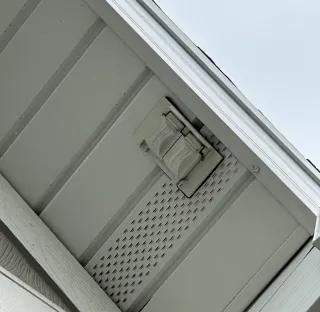Heat Tape Pro
Ice Dams
If you had Ice last year, you know how much of a pain it was to keep on top of it. Ice Dams can create all kinds of problems, and when not addressed, can be serious. Here at Nordic, we provide the best solutions in Utah, Idaho, and Wyoming for your winter needs.
Install
Unlike cheap constant wattage cables, HeatTapePRO™ can be overlapped during installation and can be installed on virtually any roof including asphalt, metal, wood, tile, synthetic, rubber and other flat roofs. Gutters and downspouts are also lined with the product.
Self-Regulating
Our heat tape is Self-regulating, which means that changes its operating temperature depending on the temperature of the environment in which it exists. This includes ambient temperatures of the air and surface temperatures of materials that the cable is in contact with
Warranty
Radiant Solutions Company, our supplier, provides a 10-year product warranty for the system. Heat Tape Pro is a favorite across North America because of its intuitive design and the longest warranty around. We look forward to working with you.
Get Heat Tape to...
✅ Prevent Ice Dams
✅ Prevent Roof Leaking
✅ Prevent Frozen Walkways
✅ Prevent Roof and Gutter Damage
What is the Difference Heat Tape Pro and Store Bought?
Heat Tape purchased in stores is constant wattage heat tape. “Constant Wattage” means: it is always on. It is always drawing full power and is costing you peak energy expenses, which –over the length of a season– can add up huge. Thought you were saving money on that heat tape you got at that home improvement store? Guess again. Our Heat Tape heating cable is Self-Regulating. This means, as the temperature gets colder, the cable creates more heat by drawing more power and when it gets warmer it creates less heat by drawing less power. This allows you to consume only the energy you need to help protect your roof from damage caused by ice dams.
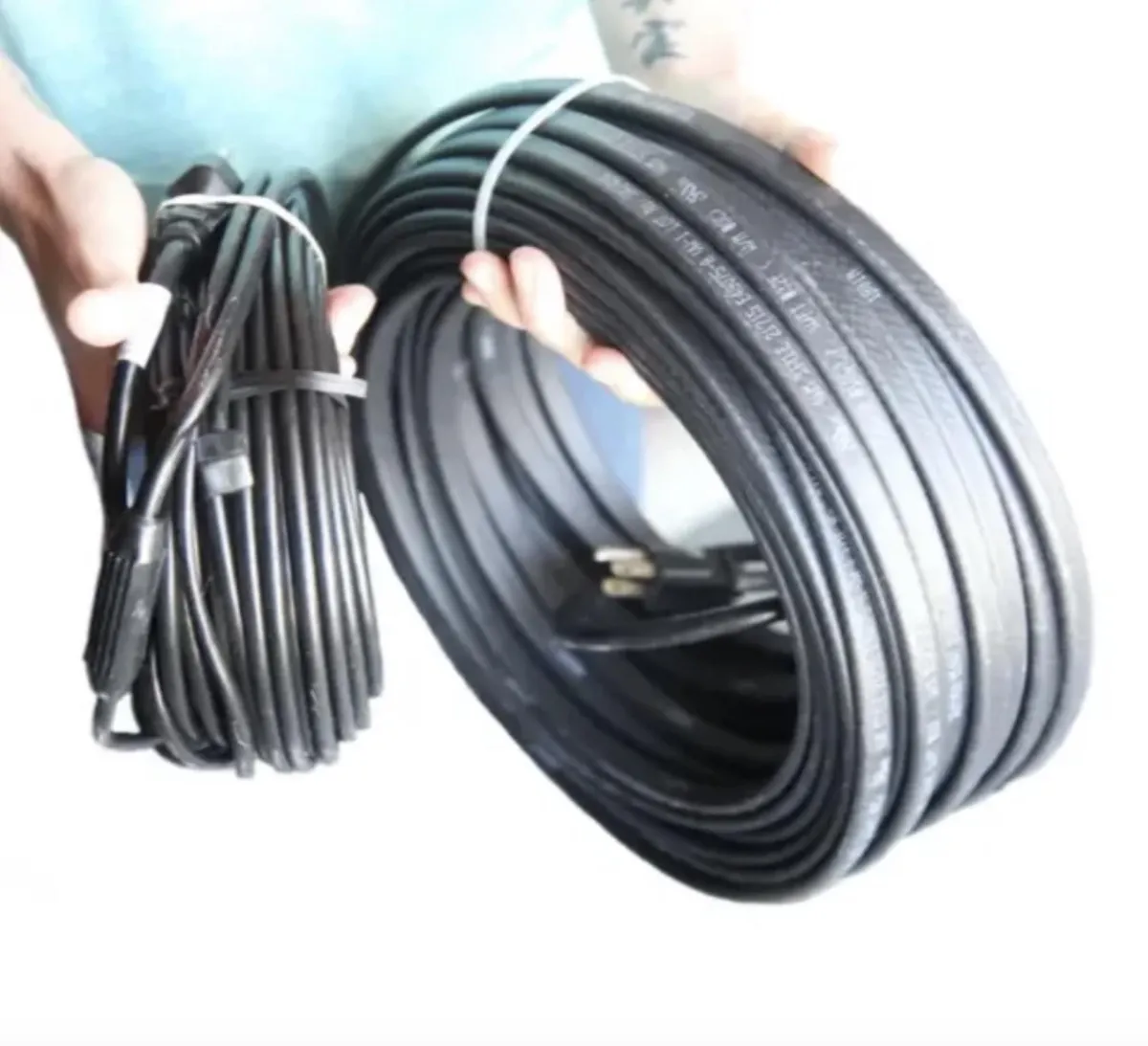
How much does the service cost?
Heat Tape Installation can be costly. When we design systems, we do our best to keep costs low while still creating a system that will effectively provide a solution for Ice Dams. It is important to note that there also may be additional costs to what we provide. Some additional expenses may include hiring out electrical work to install new outlets and circuits, installing snow retention/breaks to prevent snow slides on medal roofs, or even repairing or installing new gutters to create new channels for water to flow to the ground.
The tape itself is expensive, but as some say, you get what you pay for. This high quality tape is more durable and lasts far longer than constant wattage heat cable. The average life span of currently installed cable is 20 years. Projects typically cost between $1800-$8000, but our average is around $3500. Schedule a bid today to get a quote for your project.
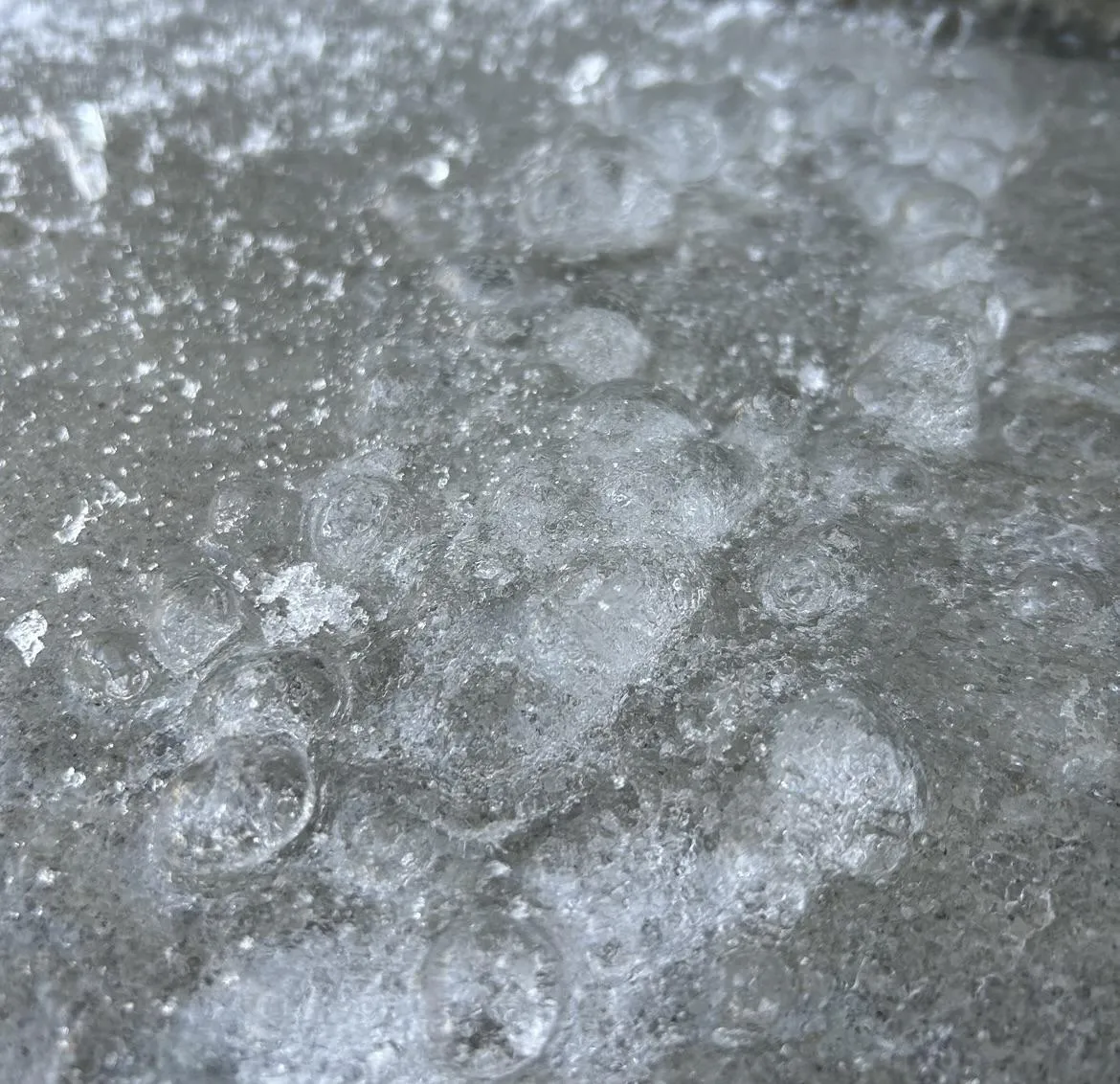
Why do people choose us?
There are a lot of companies and contractors in the market for heat tape. We find that the larger companies charge premium rates and some of the smaller contractors lack the knowledge of product and proper installation. We fit right in the middle. As stated above, we do our best to keep costs low with our design, using current outlets on the home that meet the power requirements is a big one. Heat tape is one of the biggest things we do! We will provide solutions to your ice trouble. We look forward to working with you.
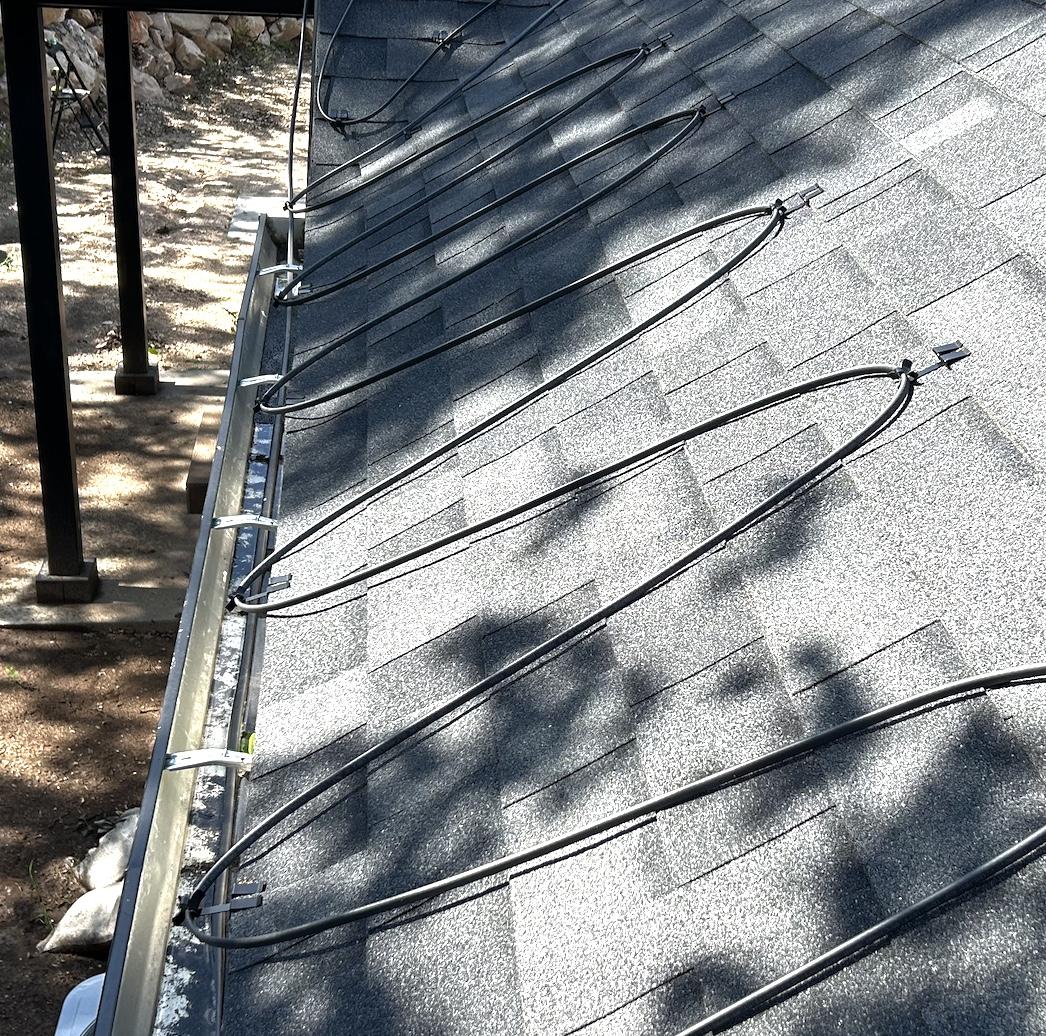
Product Specs.
Quick Specs: (See Product Manual Tab for more details)
10’ Power Cord (14AWG), with LED Plug
Cable Dimensions: 6mm x 12mm
GlowCap™ LED End Seal
Heat Tape Wattage: 6w/ft @ 50ºF (9.6w/ft @ 32º or lower)
Heat Tape Voltage: 120 volts
Operating Temperature: 40ºF-90ºF (Typical)
Applications: Roof, Gutter & Pipe
Outer Jacket: UV-Resistant TPE
How is the tape installed?
The most important thing when it comes to the installation is NO NAILS, NO SCREWS, and NO STAPLES. Methods that use these tend to be prone to leaks, create shorts in the system, and also may void roof warranties. Heat Tape systems are generally installed with Grip Clips. Using its patented design, the Grip Clip can sturdily hold your Ice Dam Heat Tape. They are made of weather resistant high-quality aluminum which securely holds the product to the roof unlike cheaper cables. Some Installations, typically with medal roofs, may need to be secured with other methods.
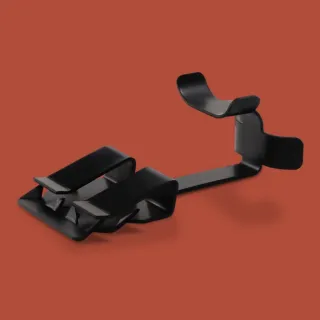
Power and Extension Cords.
It is highly recommended not to use extension cords to power the system. Our systems can draw large amounts of power on super cold days which often extension cords aren’t able to keep up with the demand. We highly recommend adding additional outlets near downspouts and in the soffits to properly meet the power requirements for the system. We can power a maximum of 150' of Heat Tape on one circuit. All new outlets must be rated for 30-mA ground fault protection, wired by a minimum of a 15 AMP breaker, and installed by a certified electrician. We do not provide extension cords if the homeowner opts into using outlets much further away.
